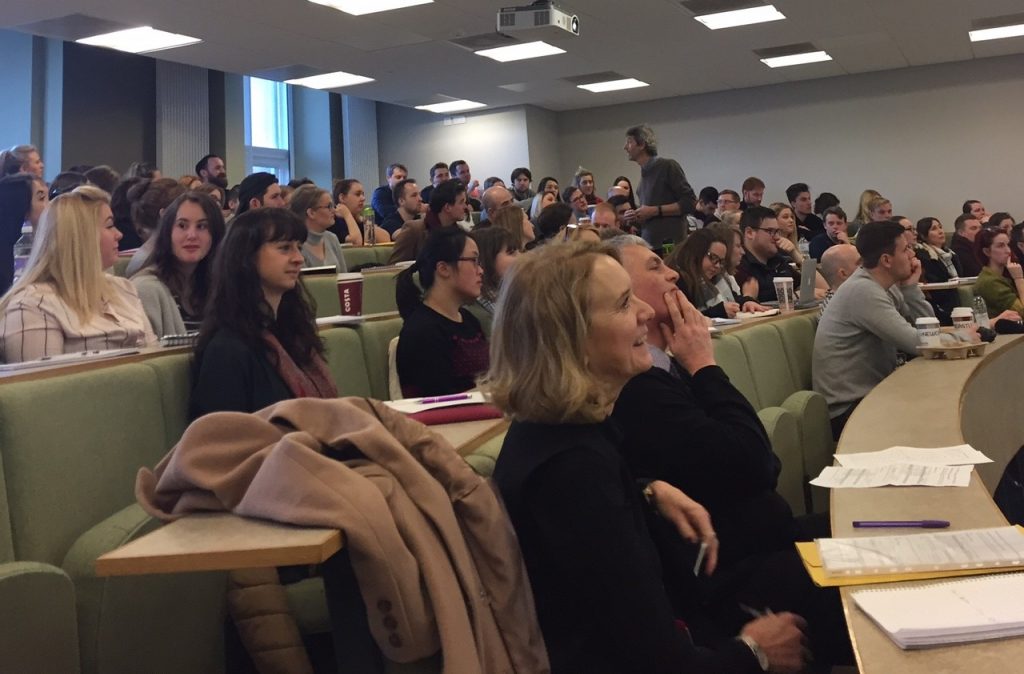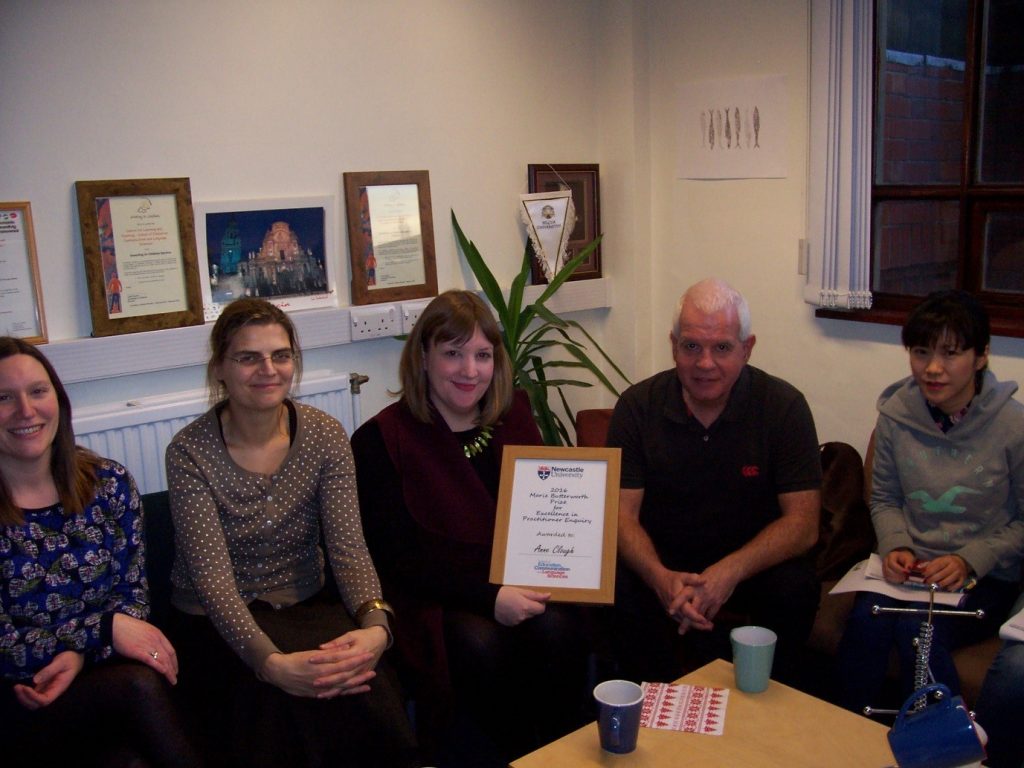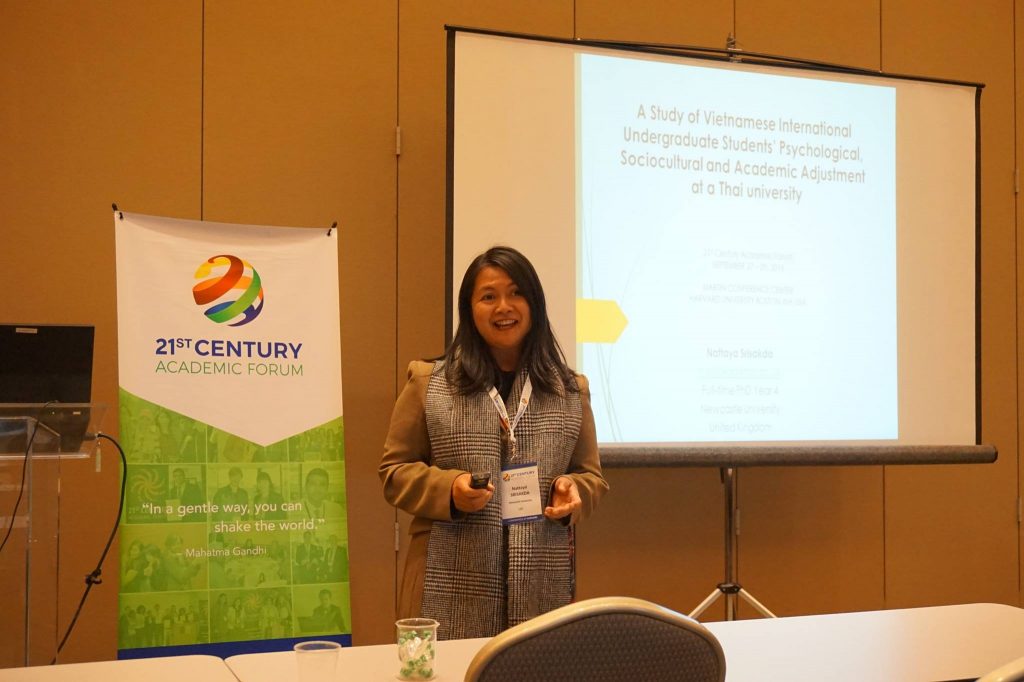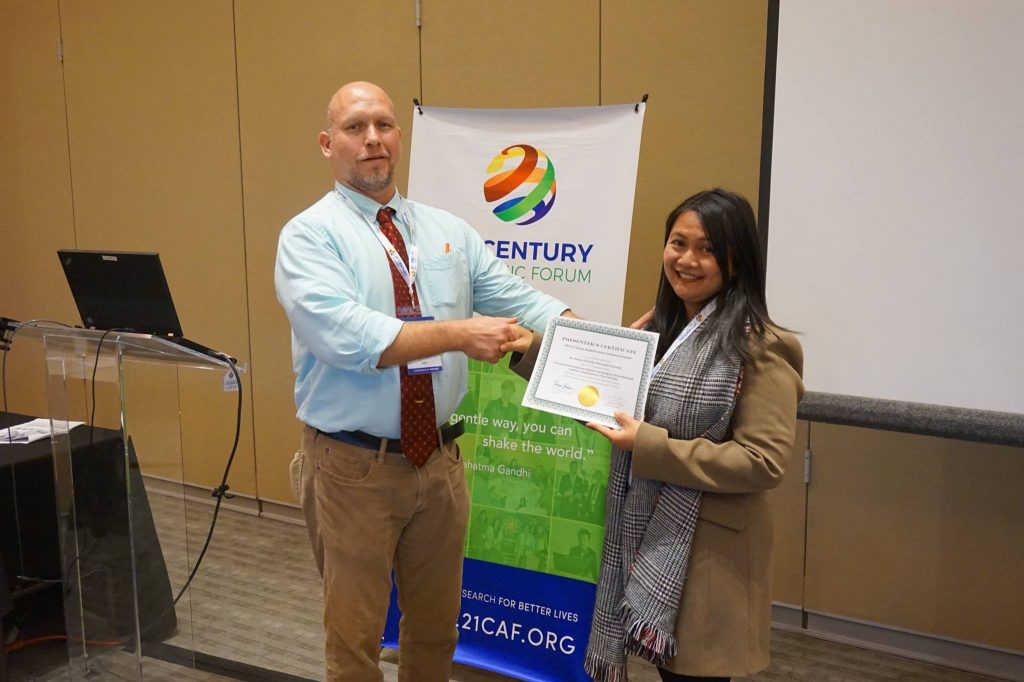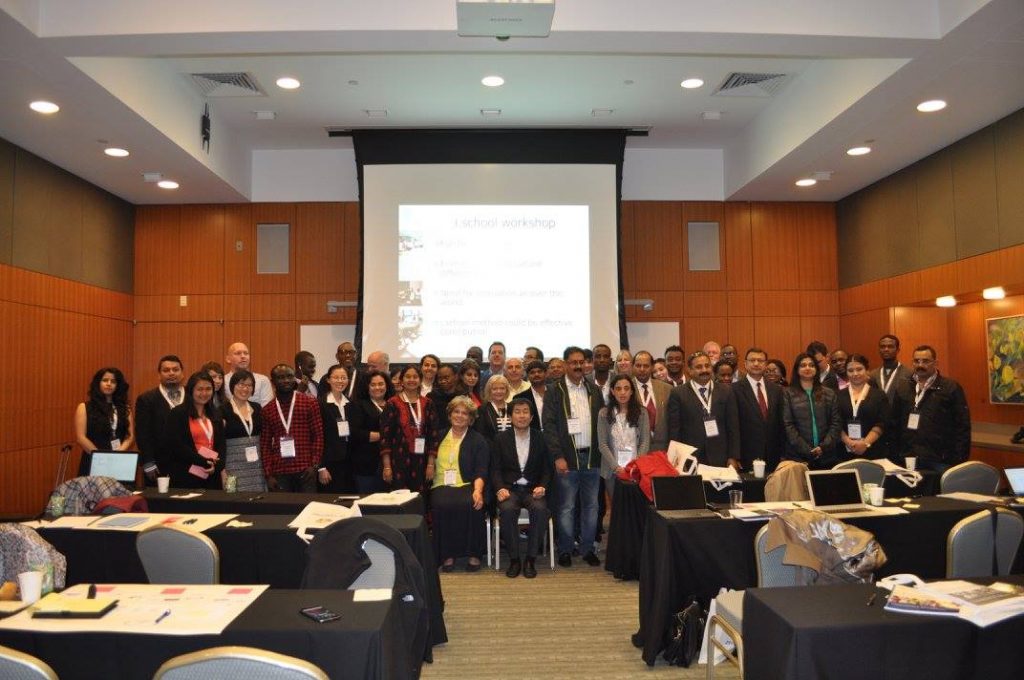Our Secondary Core and School Direct PGCE and Employer-based PGCE students (based at Newcastle SCITT) started their new term with a busy period at both university and in school. One aspect of this was the two day conference on Teaching Thinking Skills, which is the taught basis of a Masters module. Here the students were introduced to thinking skills, metacognitive talk & lesson study, and they will follow this up using Lesson Study to co-plan, teach, observe and co-enquire into this pedagogic approach in their placement schools, as described in a previous blog post. The focus on teaching thinking skills builds on the legacy of former work by tutors and school teachers in the North East of England, in the late 90s and early 2000s which resulted in the ‘Thinking through …’ series of books.
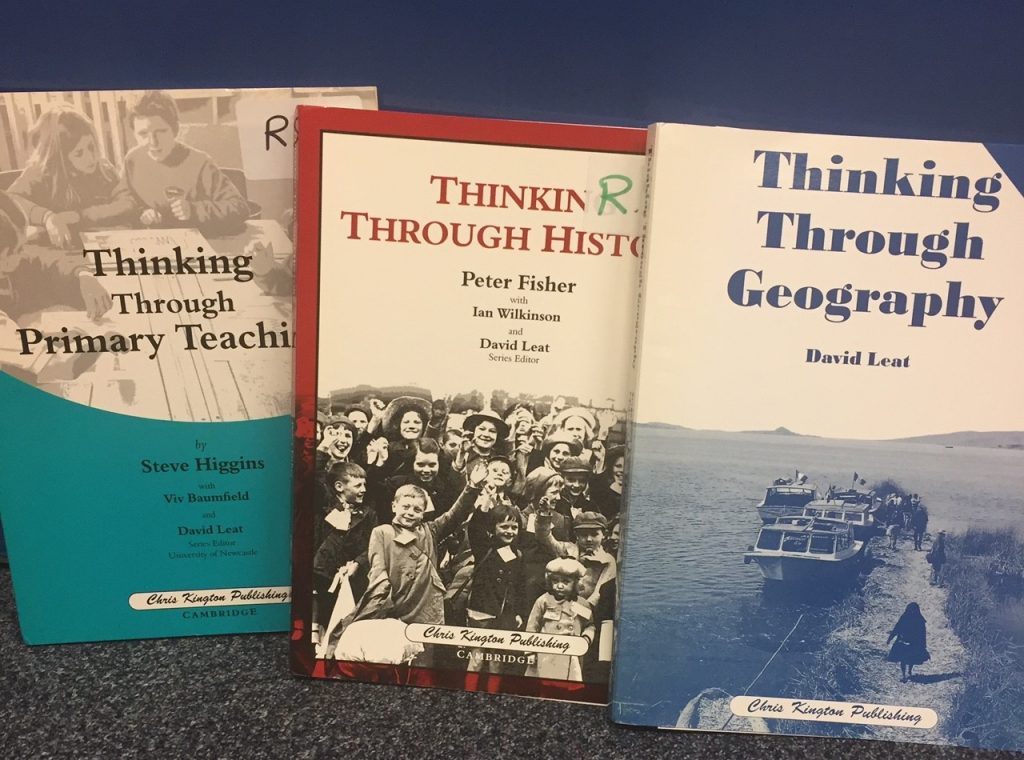
During the conference students had keynote lectures provided by ECLS colleagues Professor David Leat and Dr Rachel Lofthouse and Kirsty Tate (Assistant Headteacher from Park View School), and were also introduced to Project-based learning by a group of their fellow School Direct PGCE students.
In between these session were six workshops. Each one designed to ‘model’ popular strategies for teaching thinking skills. Each strategy was be briefly modelled so that students could gain an appreciation of Thinking Skills pedagogies from learners’ perspectives. This was followed by discussion which allowed them to think about which approaches they want to plan for in their own subjects and phase for their later lesson study. Workshops were well received by the students, as one of our Employer-based PGCE students stated, “The sessions on Thinking Skills were very engaging and highly insightful.” What a relief to know that the legacy of the original research and development work from well over a decade ago lives on! Details of some of the six approaches modelled in the workshops are given below.
Mysteries (Kim Cowie)
Mysteries give students an opportunity to develop thinking skills and work collaboratively. They require students to link information logically into cause and effect and justify their decisions. They encourage substantive conversations and can create cognitive dissonance which while it can frustrate usually sparks enjoyment and creativity as students start to ‘argue’ and hypothesise’ – great fun as a student and as a teacher!
Living Graphs & Fortune Lines (Jon Haines)
Visualising thinking, and working collaboratively, to plot less conventional information, such as non-dated events, emotions and observations on paper, required trainee teachers to communicate effectively, justify, argue and reason to support their decisions and choices. Within minutes of reading through the statements for the first task, substantive conversation, contextualisation and linking to the real world were all evident alongside an increased depth of engagement and discussion that anyone may have predicted based upon the subject matter!
Map from Memory (Lynne Kay)
The Map from Memory strategy required students to work on their memory, by providing a context in which they became more aware of their memorisation techniques, worked out how to develop some specific strategies, with a view to becoming more effective learners and readers. Students worked in groups of four and tried to memorise chunks of visual information. Individuals came out in turn to look at the map and commit this information to memory before passing it onto others in the group as accurately as possible. In reflecting back, groups discussed some of the skills underpinning a successful approach to interpreting text or diagrams or both. It helped to raise awareness of what is involved in enabling learners to arrive at a ‘global’ or ‘gist’ understanding, establishing the ‘big picture’, and how the ‘big picture’ can help to interpret the meaning of parts of it. Adapting the strategy to different subjects and how it could be used in different ways was also discussed.
Audience and purpose (Roger Knill)
This technique focusses on developing pupil ability to justify choices to meet changing situations. It is a life skill in that it mimics the evolving choices we all make with a range of options but variable demands. How do we choose what to wear when surveying the weather on a daily basis? It teaches pupils that we can make decisions to create valid answers but also that it is a real skill to select different responses when the occasion demands. It is highly adaptable to all subject areas in school – from identifying the appropriate quotes from a novel to exemplify different themes within literature or selecting which equipment to conduct a range of experiments on a fine system in biology. Choosing only 6 options from about c.20-30 possibilities means that pupils can juggle a manageable amount of information and the layered decision making encourages substantive conversation, compromise and justification of conclusions. Great preparation for subsequent writing!
Odd One Out and Symbolic Stories (Rachel Lofthouse)
In this workshop students were first asked to scrutinise three photographs of classrooms, generating responses to the question: which this the Odd One Out and why? It is a very flexible technique and can be used as a quick starter or plenary, as well as a more substantial activity. We then practiced Symbolic Stories. An extract of text was read to the students and they individually interpreted this drawing symbols and pictures. Once they had done this they retold the story to a partner, giving an opportunity for them to fill in gaps for each other, compare how they each used symbols for different ideas, and opening up subject related themes through discussion.
Most likely (Steve Humble)
Predicting requires students to state from observations and previous knowledge what is ‘most likely’. It requires them to look for patterns and trends. With a good prediction activity a teacher needs to clearly define what the prediction is to be about and to identify attributes that help inform the prediction. So a prediction activity is different from a guess because a guess is based solely on experiences that are recalled from the past. Guesses may lead to inaccurate predictions if they fail to be substantiated by data collected over time by the student. Mostly likely activities require students to use their existing knowledge to inform future thinking.
